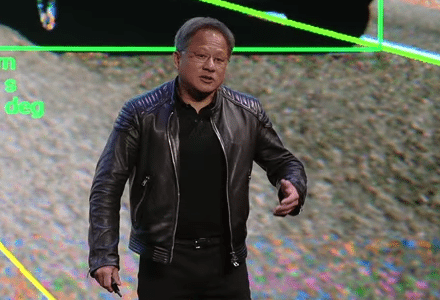Nvidia announces partnership with Volkswagen
Las Vegas, Nev. — Nvidia CEO Jensen Huang unveiled an autonomous machine processor called Xavier during a press conference at Consumer Electronics Show (CES) 2018 alongside a new partnership with Volkswagen.
“In the future, every car will be self-driving. There will be 100 million cars built each year, millions of robotaxies, and several hundred thousand trucks. All of it will be autonomous. On top of this, what will define the driving experience is the artificial intelligence (AI),” Huang said.
Xavier is a chip that provides 30 trillion operations per second with 30 watts of power. According to Huang, the processor is the most complex chip the company has pursued. “The complexity of future cars is incredible. It begins with Xavier, which can do deep learning, computer vision and high performance computing at highly efficient levels,” he said.
Nvidia said Xavier is 15 times more efficient than the former architecture. The chip depends upon nine billion transistors to keep tabs on data provided by a host of sensors needed to run a self-driving vehicle effectively. “It can never fail because lives are at stake. And it has to make the right decision, running software the world has never known how to write,” Huang said.
As part of Nvidia’s collaboration with Volkswagen, the companies will work to integrate A.I. systems with self-driving cars using the NVIDIA DRIVE IX platform. Specifically, Volkswagen intends to combine Nvidia’s technologies with its Intelligent Co-Pilot service.
“Artificial intelligence is revolutionizing the car,” said Volkswagen CEO Herbert Diess. “Autonomous driving, zero-emission mobility and digital networking are virtually impossible without advances in AI and deep learning. Combining the imagination of Volkswagen with NVIDIA, the leader in AI technology, enables us to take a big step into the future.”
“In just a few years, every new vehicle should have AI assistants for voice, gesture and facial recognition as well as augmented reality,” added Huang. “Working with Volkswagen, we are creating a new generation of cars that are safer, more enjoyable to ride in than anything that has come before, and accessible to everyone.”
Volkswagen isn’t the only automobile company Nvidia is collaborating with. The company announced it is partnering with China’s Baidu, Aurora and Uber in an effort to bring A.I. to autonomous vehicles as well. Xavier will reach the market this quarter.

